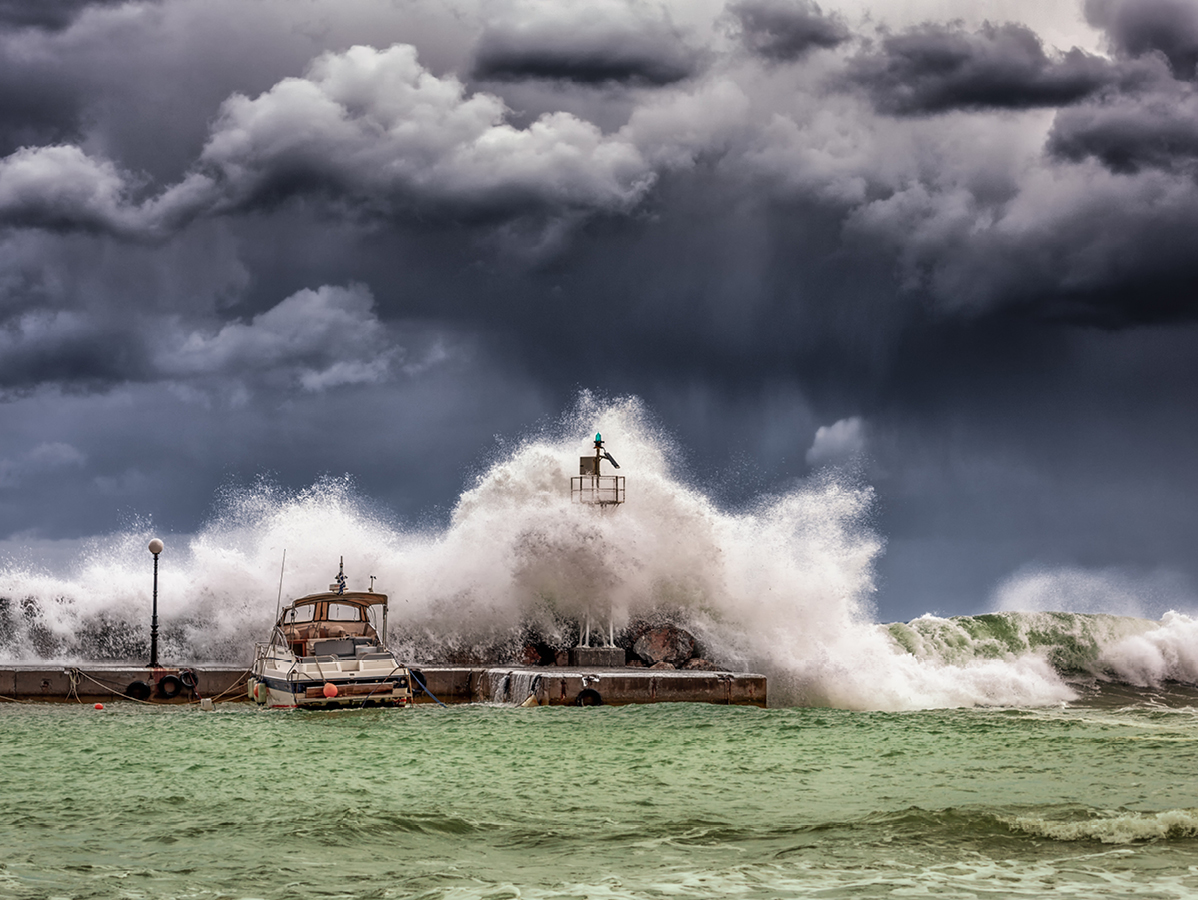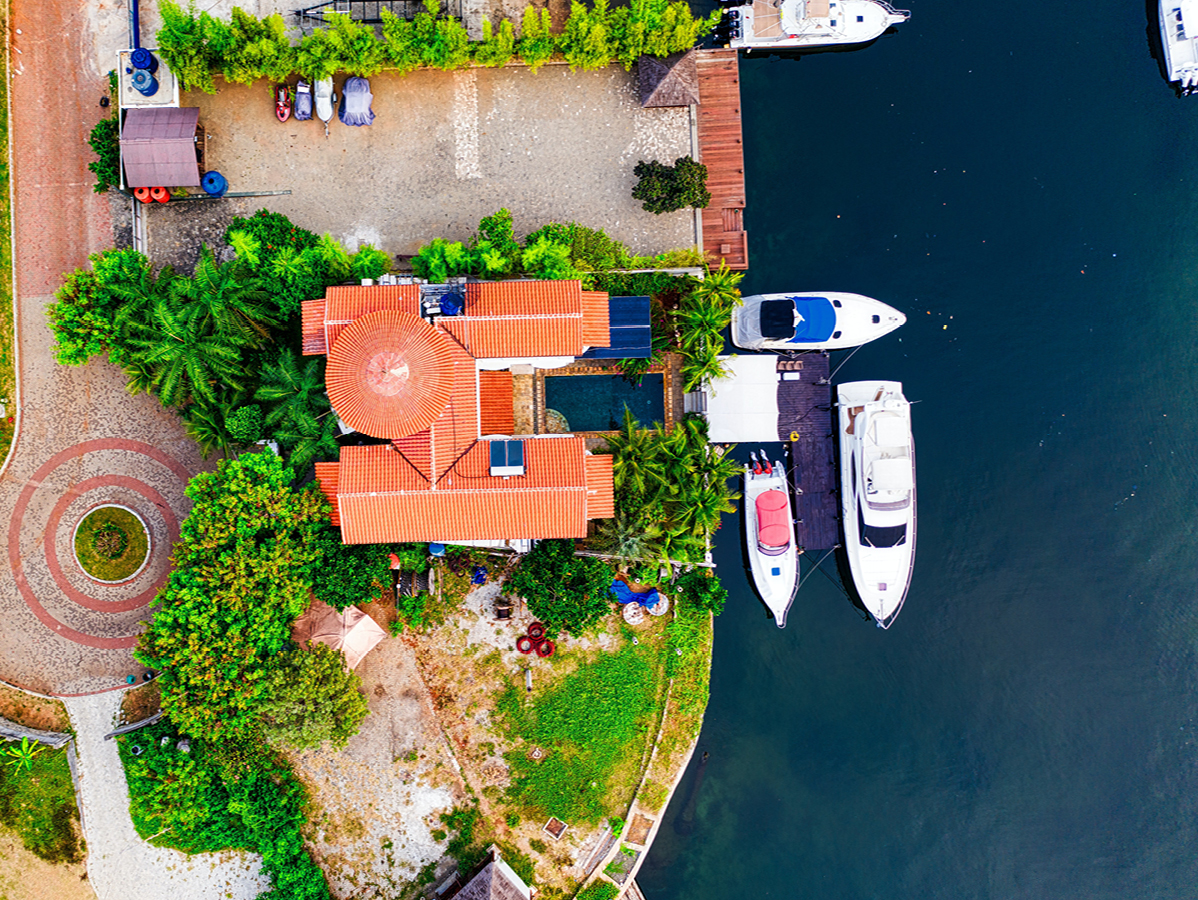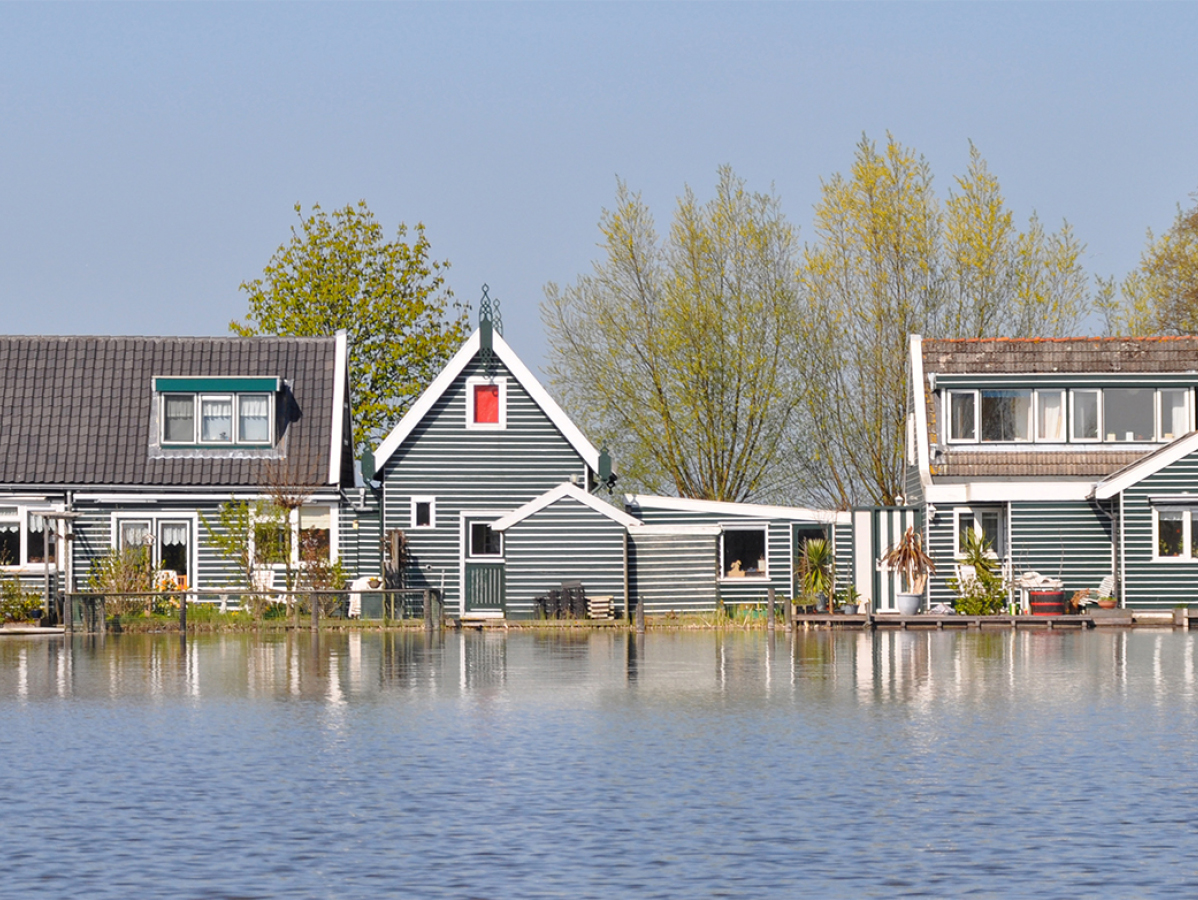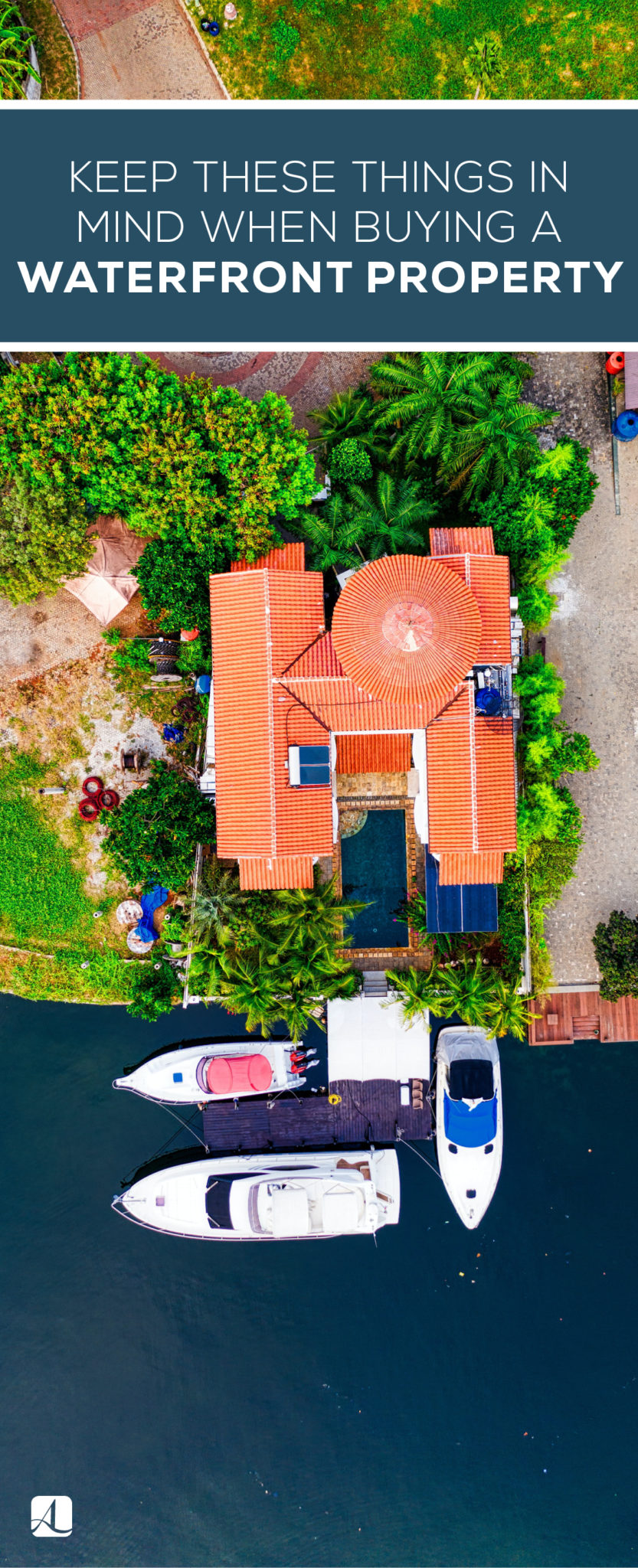Keep These Things in Mind When Buying Waterfront Property
Whether it’s along a roaring coastline or nestled next to a lethargic lake, owning waterfront property is a luxury many homebuyers dream of. However, it isn’t as simple as finding a home and moving in.
Homeownership requires responsibility, but those responsibilities grow when you move next to a body of water, no matter if it is an ocean, a lake, or river. By going in prepared, you won’t feel like you’re fighting against the current.

Make sure it’s right for you
There are many things you can change with a home, but you can’t change a large body of water. It’s important to make sure you’re happy with the location. Think of the reasons why you’re interested in waterfront property, and weigh the pros and cons. For example, if you’re a boatowner, an oceanfront property without a dock near by may not be the best choice.
Due to the location, most waterfront homes will cost more and require additional maintenance compared to other homes. If you don’t foresee yourself making use of the water with a boat, watersports, fishing, or entertaining guests, you may be better suited for a home located away from the water.
Study the location
Learn as much about the location and body of water as you can before committing to a home. Bodies of water can change over time, and you’ll want to be prepared for any changes that occur. If the water is receding, your home can eventually be further away from the coast. However, if water levels are rising, you could lose a chunk of your property.
If you plan on using a boat, make sure you know how deep the body of water is. The depth needed for boating can vary depending on the vessel being used. Finally, if you or anyone in your home plans to swim in the water, make sure the water quality is good, and learn more about any wildlife or plants that that are native to the area.

Consider the area’s weather and climate
While living next to the water can be a relaxing experience, it can also cause some stress. You’ll want to take into account the region’s weather patterns. Hurricanes can be a problem for homes along the coast, and lake effect snow can be a concern living near the Great Lakes, with accumulating snow falling in a short amount of time.
Also investigate the area’s flooding history. Depending on how far the home is located from the shoreline, the property could face flood and foundation issues. It is important to know if and what type of floodplain the home sits in.
Insurance can be costly
Depending on where you live, you may face high insurance costs. You could end up needing separate policies for flood and wind, in addition to a traditional home insurance policy. Many waterfront homeowners will need to purchase flood insurance, and rates can vary depending on the home’s proximity to a floodplain. If the house is in a high-risk zone, insurance can become expensive.
Consider any rules and regulations
Waterfront property can have strict regulations. These can vary based on locations, but some of the common regulations you may face include:
- Access to the water
- Bulkhead maintenance
- Building on the water
- Water vehicle restrictions
- Speed restrictions for boats
- Endangered animal regulations
Find out of the property is part of a homeowner’s association. There are many waterfront communities with an HOA that have certain expectations of its residents. There may be restrictions on what you can build and do to your home.

Get an inspection
This is an obvious step for buying any home. But before you decide on a waterfront property, it is important to have an expert inspection done to find any potential issues. Waterfront property concerns can include:
- Corrosion from salt in the air near the ocean.
- Extra moisture in the air causing mildew or mold.
- Soil erosion leading to foundation issues.
Additionally, an inspection of a waterfront property may include water quality tests, bulkhead inspections, and surveys that may not be needed for other homes.
An important step in an inspection is to make sure the property runs all the way to the shoreline. While it may appear like you own it, it is possible that someone else owns a stretch of property between the lake and the home.
Privacy may be lacking
For many, buying a home near the water is all about rest and relaxation. But if the water you live next to is popular, there may be an abundance of traffic. That makes it crucial to learn more about the area the property is located in. If you find a home on the water, try to visit the area multiple times. By going on a weekday as well as a weekend, you’ll obtain a better feel of how many people use the body of water near the home. A sleepy waterfront neighborhood during the week can make way to a rambunctious tourist spot on the weekends.
Waterfront property can be a great investment and a wonderful place to live. By making sure it is right for you, you’ll be ready to set sail in search of your dream home.
































